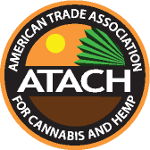Massachusetts
1. Overview of Cannabis and Hemp Laws
Cannabis:
- Recreational Use: Recreational cannabis was legalized in Massachusetts by ballot initiative in 2016, with retail sales beginning in 2018. The adult-use market operates under Chapter 334 of the Acts of 2016.
- Medical Use: Medical cannabis has been legal since 2012 and is governed by Chapter 369 of the Acts of 2012.
Hemp Intoxicants and Synthetic THC:
Massachusetts regulates hemp intoxicants, including delta-8 THC, under a “Regulated (Integrated with Cannabis)” framework, meaning they are subject to the same standards as cannabis products.
2. Historical Context
- 2008: Massachusetts decriminalized possession of small amounts of cannabis.
- 2012: Voters approved medical cannabis legalization.
- 2016: Recreational cannabis was legalized via ballot initiative.
- 2018: The first recreational cannabis stores opened in Massachusetts.
3. Recreational Cannabis Laws
- Possession Limits: Adults 21 and over may possess up to 1 ounce of cannabis in public and up to 10 ounces at home.
- Cultivation: Home cultivation of up to 6 plants per person, with a maximum of 12 plants per household, is allowed.
- Public Use: Public cannabis consumption is prohibited and punishable by fines.
- Sale and Retail: The Cannabis Control Commission oversees retail sales, including licensing and purchase limits for recreational consumers.
4. Medical Cannabis Laws
- Patient Eligibility: Qualifying conditions include chronic pain, cancer, HIV/AIDS, and other serious health conditions as defined by the Massachusetts Department of Public Health.
- Product Access: Patients may access a variety of medical cannabis products, including flower, edibles, tinctures, oils, and capsules.
- Program Details: Registered patients are issued a medical marijuana card and must follow possession and purchase limits set by the Department of Public Health.
5. Hemp-Derived Intoxicants
- Regulatory Status: Massachusetts treats intoxicating hemp products under the same regulatory structure as cannabis, requiring similar compliance standards.
- Testing and Labeling Requirements: Testing for potency, purity, and safety is mandatory, with contaminant screenings for intoxicating products.
- Age and Retail Restrictions: Sales of intoxicating hemp-derived products are restricted to individuals 21 and over, available only through licensed cannabis retailers.
6. Criminal Penalties for Cannabis Offenses
- Possession: Possession exceeding the legal limits is a civil offense, with fines escalating based on the quantity. Criminal charges apply for larger amounts or for possession with intent to distribute.
- Sale and Distribution: Unauthorized sales or distribution, particularly to minors, is treated as a felony, potentially leading to imprisonment.
- Trafficking and Cultivation: Large-scale cultivation or trafficking without a license is a felony, with severe penalties, including substantial fines and prison terms.
7. Social Equity Programs
- Eligibility Criteria: Massachusetts provides a social equity program prioritizing individuals impacted by previous cannabis-related offenses and those from communities disproportionately affected by cannabis laws.
- Licensing Benefits: Social equity applicants benefit from expedited application processing, reduced fees, and access to specific license types.
- Additional Support: The program includes business development training, technical support, and mentorship to promote equitable industry participation.
8. Business Types and Operations
- Licensing Types: Massachusetts offers licenses for various cannabis businesses, including cultivation, retail, delivery, and social consumption lounges, under both medical and recreational frameworks.
Regulatory Requirements: Licensed businesses must comply with rigorous standards for security, employee training, record-keeping, and consumer safety, as established by the Cannabis Control Commission.
